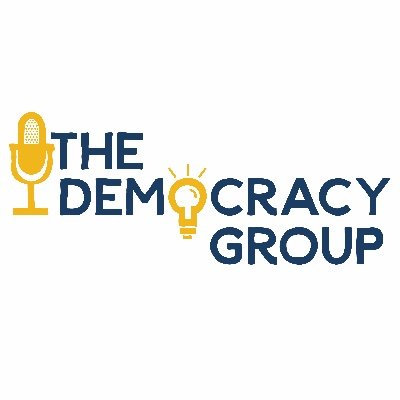
More in Common US
@MoreInCommon_US
Followers
3K
Following
236
Media
409
Statuses
2K
We seek to understand the forces driving us apart, find common ground, and help bring Americans together to tackle our shared challenges.
New York, NY
Joined September 2018
BREAKING: New research from @MoreinCommon_US and @FOXSports reveals: 🏈 Sports fans are more civically engaged ⚾️ More open to cross-partisan connection 🏀 More likely to uphold democratic values At a time when Americans are divided, sports may be one of our most underutilized
0
3
2
74% of women and 63% of men want more conversation on men’s wellbeing. Our new commentary by @zacseidler and Brian Heilman looks at survey data from @Movember and @MoreInCommon_US to assess how Americans feel about men’s health and the discourse around it:
0
3
13
🏈 Sports are more than just games—they’re a healthy outlet for connection, especially among men. Nearly 8 in 10 passionate sports fans say sports provide men a positive way to express themselves, compared to just 48% of non-fans. Learn more: https://t.co/b3o7ODCnaf
0
0
1
Sports fandom takes the edge off politics. Unlike many politically engaged Americans who distrust those with different views, sports fans buck the trend. They’re both more politically engaged and more open to cross-partisan connection. The most passionate sports fans are: 🗳️
0
1
0
Could sports fans be democracy’s secret weapon? New research shows that the most passionate sports fans are more likely to vote, give back to their communities, and connect across political divides. Read the full study from @MoreinCommon_US and @FOXSports →
0
1
1
Fabulous article from @PearceGodwin published in The Catalyst from @TheBushCenter. He argues persuasively that "Persistent misperceptions are what keep Americans divided." Yes, that's indeed a BIG part of the problem. @MoreInCommon_US #ListenFirst
https://t.co/QRe4IoaJuz
bushcenter.org
1
2
1
Read about our perception gap work in "Understanding the other" via @thebushcenter
https://t.co/iMgKHbLuZJ 2/2
bushcenter.org
1
1
1
"One of the major drivers of toxic polarization is what the organization More in Common calls perception gaps – the difference between what we perceive another group thinks and what members of that other group actually think." 1/2
1
0
1
ICYMI: 7-yr research effort via the Beacon Project @MoreInCommon_US key takeaways for those of us seeking to improve opportunities & outcomes & a path forward for US policymaking & governance: – Personal agency and justice are not mutually exclusive. – Efforts to build a fairer
0
1
1
How can we get Americans to connect? Listen to More in Common's Kate Carney and Calista Small on @OutrageOverload
https://t.co/i1nyGFJGm9
outrageoverload.net
Kate Carney and Calista Small discuss the Connection Opportunity report
1
1
2
A @MoreInCommon_US study found: ⭐ 25% of Gen Z say they don’t really care about the Constitution. ⭐ Nearly half of (47%) of Gen Z Americans agree that “sometimes it’s okay for leaders to set aside democratic principles (e.g. constitutional checks & balances) to fix the economy.
2
1
2
“The biggest takeaway I can emphasize is that to make Gen Z invested in our democracy, we need to listen to their problems, rather than dismissing them." More in Common's Rabhya Mehrotra speaks about our Gen Z report in @GroupDemocracy
https://t.co/UB9Zf82eHQ
democracygroup.org
The report explores the question, “Is Gen Z giving up on democracy?”
0
0
1
We are hiring for a super-exciting role at @MoreInCommon_US: to help reboot our seminal Hidden Tribes project for the year 2026. See below for details! https://t.co/XSOYOT3zI7
0
3
9
At a time when so much feels beyond our control, can we shape our future? Last week, More in Common's @dyudkin and @WoodardColin of #NationhoodLab at @SalveRegina met to discuss core principles that can unite Americans: dignity, freedom, opportunity, and personal agency.
0
0
1
Can We Unpolarize? Watch @BulwarkOnline's @monacharen interview our co-founders @dixontim and Mathieu Lefevre. https://t.co/H4zTm6PtCK
0
1
4
Faced with so many urgent practical and political problems, one can well ask whether we can afford to invest in the somewhat abstract exercise of thinking about and articulating narratives. But what if many of the problems we face are caused, in part, by the circulation of
0
15
36




















